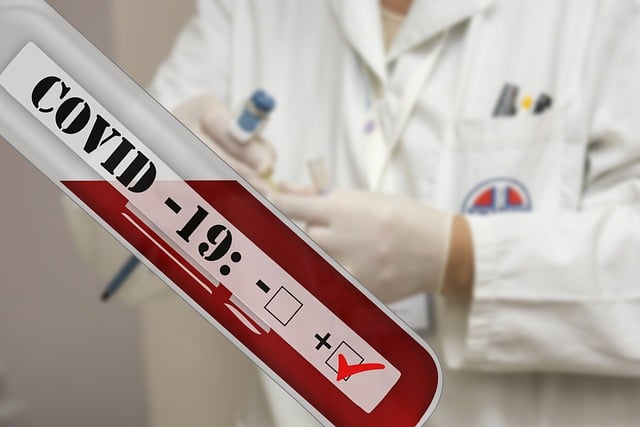In the UK, ferritin testing is a vital tool for diagnosing iron deficiency alongside Vitamin D Blood Tests. Ferritin, an iron-storing protein, is measured in blood samples to identify low iron levels. Normal ranges are 20-400 mcg/mL; levels below 20 indicate potential deficiency. Results guide healthcare professionals in prescribing dietary changes, supplements, and monitoring treatment progress to prevent conditions like Iron Deficiency Anemia.
“Unraveling Iron Deficiency: The Role of Ferritin Level Testing
Iron deficiency is a common nutritional disorder, yet diagnosing it accurately can be intricate. This is where ferritin level testing steps in as a vital tool. Ferritin, a protein storing iron, plays a crucial role in maintaining optimal health. In the UK, understanding how ferritin blood tests are conducted and interpreted is essential for accurate diagnosis, especially considering the country’s focus on routine UK Vitamin D Blood Test protocols. Let’s explore how this simple test can reveal complex nutrient imbalances.”
- Understanding Ferritin and its Role in Iron Deficiency
- How Ferritin Level Testing Works in the UK
- Interpreting Results and Next Steps for Diagnosis
Understanding Ferritin and its Role in Iron Deficiency
Ferritin is a protein that plays a vital role in storing and regulating iron levels in the body. It acts as a natural reservoir, capturing excess iron for future use when dietary intake is low. In the context of UK Vitamin D Blood Test results, understanding ferritin levels is crucial when diagnosing iron deficiency. When the body lacks sufficient iron, ferritin levels decrease, signalling a potential deficiency.
Iron deficiency can lead to anaemia and various health issues. Therefore, healthcare professionals often recommend ferritin level testing as part of their initial assessment. A UK Vitamin D Blood Test might include measuring ferritin to help identify individuals with low iron stores, allowing for timely intervention and appropriate treatment options, such as dietary changes or supplements.
How Ferritin Level Testing Works in the UK
In the UK, Ferritin level testing is a crucial tool in diagnosing Iron Deficiency, often used alongside other vitamin and mineral profiles, including the popular UK Vitamin D Blood Test. This process involves taking a small sample of blood, usually from a vein in the arm, to measure the amount of ferritin present. Ferritin is a protein that stores iron in the body; low levels indicate that there might be inadequate iron absorption or utilization.
The test provides valuable insights into an individual’s iron status, helping healthcare professionals identify Iron Deficiency Anemia or other related conditions. Results are typically measured in micrograms per liter (μg/L), and reference ranges vary slightly between laboratories and age groups. Once a sample is collected, it’s sent to a laboratory for analysis using highly sensitive techniques like chemiluminescence immunoassay, ensuring accurate readings of ferritin levels.
Interpreting Results and Next Steps for Diagnosis
Interpreting your ferritin level results is key to understanding your iron deficiency diagnosis. Ferritin, a protein that stores and transports iron in your body, is measured in micrograms per millilitre (mcg/mL). Normal levels typically range from 20-400 mcg/mL; anything below 20 mcg/mL indicates potential iron deficiency. If your results fall outside this range, further investigation will be required.
Next steps for diagnosis may include additional blood tests, such as a UK Vitamin D Blood Test, to rule out other underlying health conditions. Your healthcare provider may also recommend an iron-rich diet and supplements to address the iron deficiency. Regular monitoring of ferritin levels over time can help assess the effectiveness of these interventions.
Ferritin level testing is a crucial tool in diagnosing Iron Deficiency, especially in the UK. By understanding ferritin’s role in storing and transporting iron, we can effectively interpret test results to guide diagnosis and treatment. This process, combined with other vitamin D blood tests, ensures patients receive appropriate care, promoting overall health and well-being.
